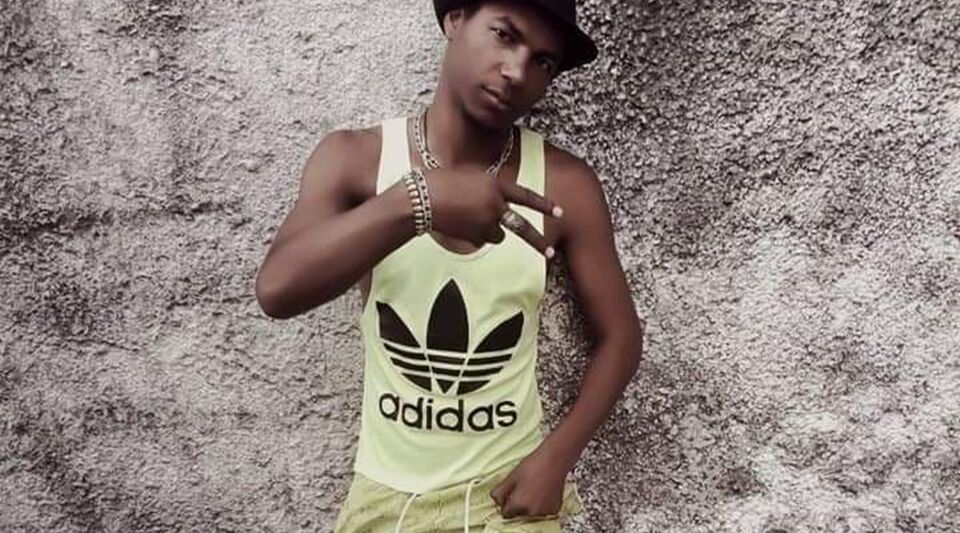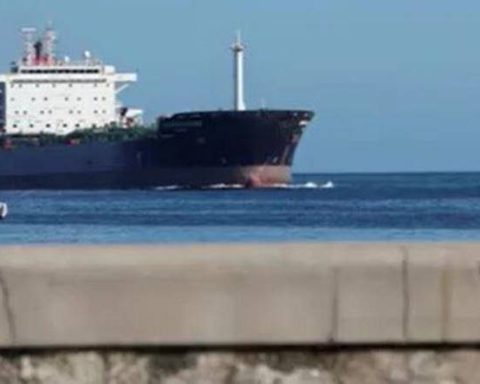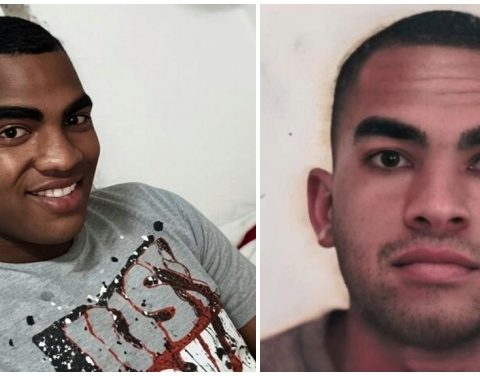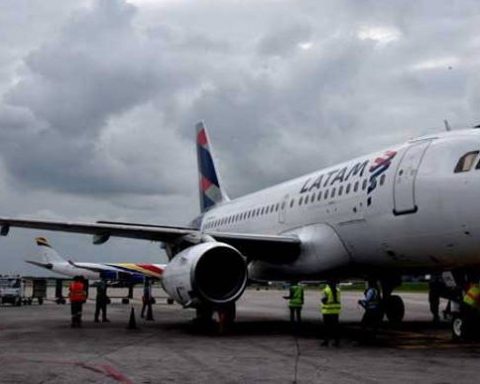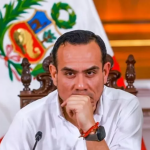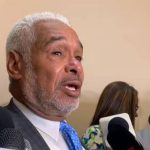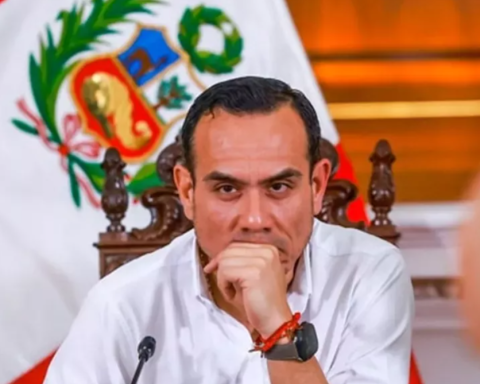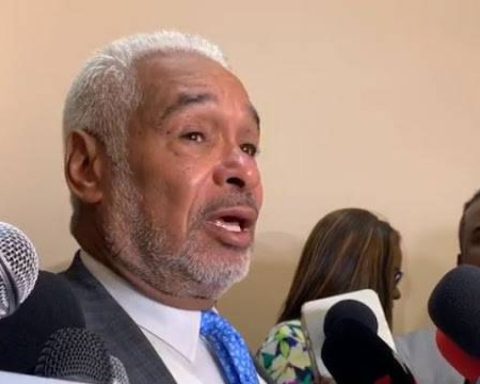At least 83 deaths that occurred in 2021 are attributed by Archivo Cuba to the Cuban State. Among them, in a report published this Fridaythe Miami-based organization counts 5 “extrajudicial executions” and 3 deceased while in police custody, in addition to 2 young people who were performing Active Military Service (SMA).
The NGO also counts on this list 2 “alleged suicides” in freedom, 2 activists who died when they were denied medical care, 7 health workers on international missions and at least 62 migrants who left the island in search of asylum.
One of the five “extrajudicial executions” is that of Diubis Laurencio Tejeda, the the only death recognized by the Cuban government in the demonstrations crowd last July. The young man was shot from behind in Arroyo Naranjo, Havana, on July 12, by police officer Yoennis Pelegrín, who had shot at the unarmed crowd.
Archivo Cuba recalls that the government investigation determined that the shooting was justified because it was in “legitimate defense” and that, in September, the Military Prosecutor’s Office opened a file on the police, but to date has not filed charges.
According to the report, he left his house for Sierrita beach with the intention of escaping from the island by boat, but elite troops arrived at dawn and “opened fire”
The same day, the NGO documents another alleged murder, that of Christian Barrera Díaz, 24, after having participated in the 11J protests. According to the report, he left his house for Sierrita beach, in Matanzas, with the intention of escaping from the island by boat, but elite troops arrived at dawn and “opened fire.”
First, says Archivo Cuba, his family was told that he was detained in Matanzas for trying to “illegally leave” the country, and then, after three weeks of unsuccessful searching through all the prisons in the province, he was told that he had drowned. and that his “very decomposed” body had been buried in a mass grave.
Another of these recorded homicides is that of Luis Sánchez Valdés, who died at the Abel Santamaría Cuadrado hospital in Pinar del Río on January 2, 2021, almost a month after being prostrated by a beating at the hands of a police officer.
Sánchez Valdés, reports the organization led by María Werlau, was in line to enter a store on December 8, 2020, and several agents asked for his identity card. “They got into an argument and one of the police officers pushed him and kept hitting him with his baton even though he had fallen to the ground, hitting his head hard.”
Far from acknowledging the attack, official media presented witnesses who maintained that the man had suffered an epileptic seizure and the Ministry of the Interior reported that he had died as a result of “cranial trauma with fracture” when he fell from his own feet when the police He asked for her ID. The family reiterated that the doctor who treated Sánchez Valdés assured that such a fall could not cause the injuries presented by the corpse and that he was hit with an object, which was also “confirmed by independent experts,” the NGO clarifies.
“They got into an argument and one of the police officers pushed him and kept hitting him with his baton even though he had fallen to the ground, hitting his head hard.”
A fourth alleged murder is that of Eduardo Nodarse Pérez, 52, on April 17, at a police station in Cojímar, Havana. The man was arrested, narrates Archivo Cuba, after denouncing the theft of two sacks of rice from the store where he worked as a security guard. The next day, the police notified the family that he was dead. “The police report initially said the cause of death was a heart attack, but this was changed to respiratory failure,” the report says. “Eduardo was in good health and the reason for his arrest after reporting the robbery was not explained.”
Finally, Elíades Peña Carballo, 47, “was allegedly beaten to death at a police station in Manatí, Las Tunas, on May 4, 2021,” the organization details. Peña Carballo was a milk producer and was arrested on the previous April 28, accused of “pre-criminal social danger.” His trial had been scheduled for May 3, 2021, but was postponed by a day after it was determined that the signatures supporting the charges had been forged and the case would be dismissed.
“The authorities affirmed that he hanged himself, but they gave his family different versions of how,” says Archivo Cuba. “Screams were heard hours before his death was reported and his body had bruises on his abdomen and neck, as well as two swollen fingers.”
Archivo Cuba also holds the regime responsible for the deaths of Mykel Acosta Sánchez, Reinaldo Montediel López and Sabino Serrano López, who were in police custody. “The Cuban authorities do not provide information on deaths in custody,” explains the NGO. “All of which credible information can be obtained is documented given the unjust nature of many Cuban laws, the absence of due process of law, and the practice of sentencing people considered to be a threat to the regime for common crimes, along with the appalling prison conditions, mistreatment, lack of medical attention and lack of international supervision”.
“Screams were heard hours before his death was reported and his body had bruises on his abdomen and neck, as well as two swollen fingers.”
Acosta, 35, died on May 6 at the National Hospital in Havana, after 19 days on a hunger strike to protest his imprisonment. Imprisoned in the Combinado del Este, he was arrested for the first time in 2004, at age 17, accused of robbery with violence, and years later, on parole, he was imprisoned again for drug trafficking. Archivo Cuba clarifies that he had reiterated his innocence in both accusations.
Another prisoner, Serrano López, died on March 24 at the age of 70 at the Miguel Henríquez Hospital in Havana, after spending “22 years without receiving adequate care for a circulatory condition.” He had been sentenced in 1999 to life in prison for “human trafficking” for piloting a boat that was sunk by Cuban border guards, an action in which a 36-year-old woman and her four-year-old son drowned. A month before he died, doctors told Serrano that he could save himself from gangrene that would cost him his life if his feet were amputated, but the Combinado del Este authorities did not approve the surgery. “The cause of death was reported as a heart attack, however he had been very ill for several days with a very swollen stomach.”
That of Montediel López, 34, is considered by the NGO to be a “presumed suicide”, when he appeared hanged in his cell on June 19, in the Task Confianza prison in Cienfuegos. “He had been captured after escaping from a forced labor camp and it appears that he had told fellow inmates that he was tired of so much suffering,” the document says.
“Many prisoners are driven to suicide, but there are also reports of many suicides under suspicious circumstances that are probably extrajudicial executions,” explains Archivo Cuba, which attributes, for example, the suicides of Jorge Cachón Martínez and Juan Carlos Linares to the desperate situation in that their lives were within the regime.
For Archivo Cuba, the suicide of Annier González, in Havana, and the death in an accident of Carel Gutierrezin Artemisa, who were performing Active Military Service, are also attributable to the Government, since the cadets “must do all kinds of manual work without the proper equipment, in terrible conditions, fed subsistence diets and are even forced to donate blood to supply a business of the Cuban State”.
________________________
Collaborate with our work:
The team of 14ymedio is committed to doing serious journalism that reflects the reality of deep Cuba. Thank you for joining us on this long road. We invite you to continue supporting us, but this time becoming a member of our journal. Together we can continue transforming journalism in Cuba.
